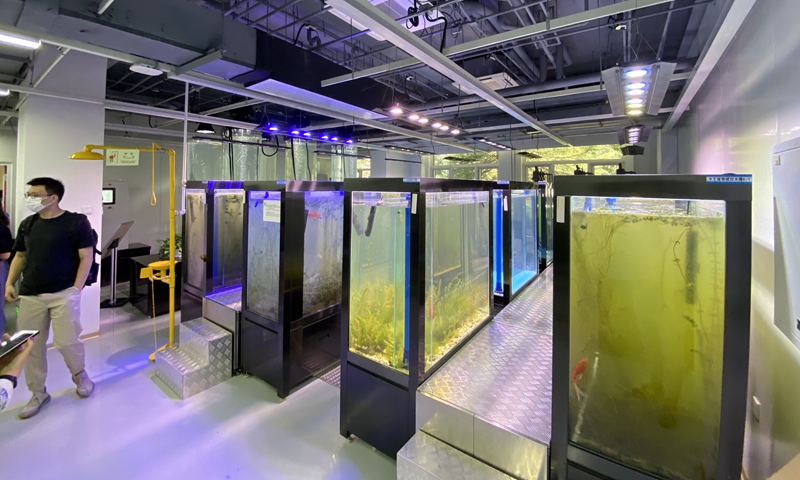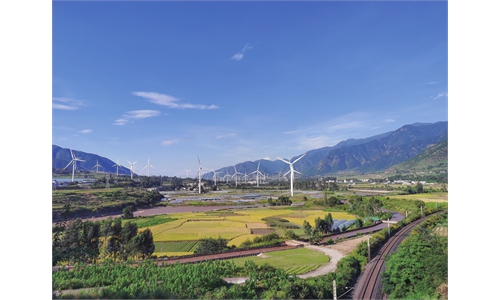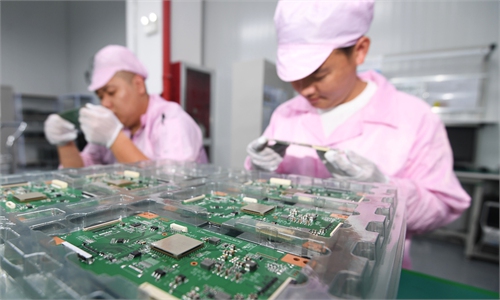Enthusiasm for carbon reduction to offer opportunities for innovation, fostering talent: top researcher

Inside the Chinese Research Academy of Environmental Sciences Photo: Shan Jie/GT
China's goals for carbon emissions to peak by 2030 and to reach carbon neutrality by 2060 have brought new opportunities, a top Chinese researcher has said, noting that society's enthusiasm for the goals can boost innovation and help to foster talent in this area.
While traditional industries face a challenge, there is an opportunity for greener industries, Li Haisheng, director at the Chinese Research Academy of Environmental Sciences (CRAES) under the Ministry of Ecology and Environment (MEE), said at a meeting on Tuesday.
In China, the energy utilization rate in the manufacturing industry is only equivalent to 68 percent, 50 percent, and 48 percent of the rate in the US, Japan, and Germany. Therefore, there is huge room for upgrading the industrial structure, which will activate a lot of science and technology, he said.
Li suggested that an institute on low-carbon development will soon be formed under the CRAES, and scientists in other fields will also work on this topic, such as those studying the management of waste, the air and the water.
As the carbon peak and carbon neutrality have been included in the Report on the Work of the Government in 2021, a "fascination" has been triggered in society, Li said. "Everybody is talking about carbon reduction."
China declared at the General Debate of the 75th Session of the UN General Assembly that China aims to have CO2 emissions peak before 2030 and to achieve carbon neutrality before 2060.
The CRAES, established in 1978, conducts scientific and international cooperation activities which support the country's overall environmental protection aims. It has 15 research departments, two state key laboratories and eight ministerial laboratories, focusing on the atmosphere, water, soil and solid waste, ecology, cleaner production, vehicle emission control, environmental engineering, environmental safety and environmental standards.




